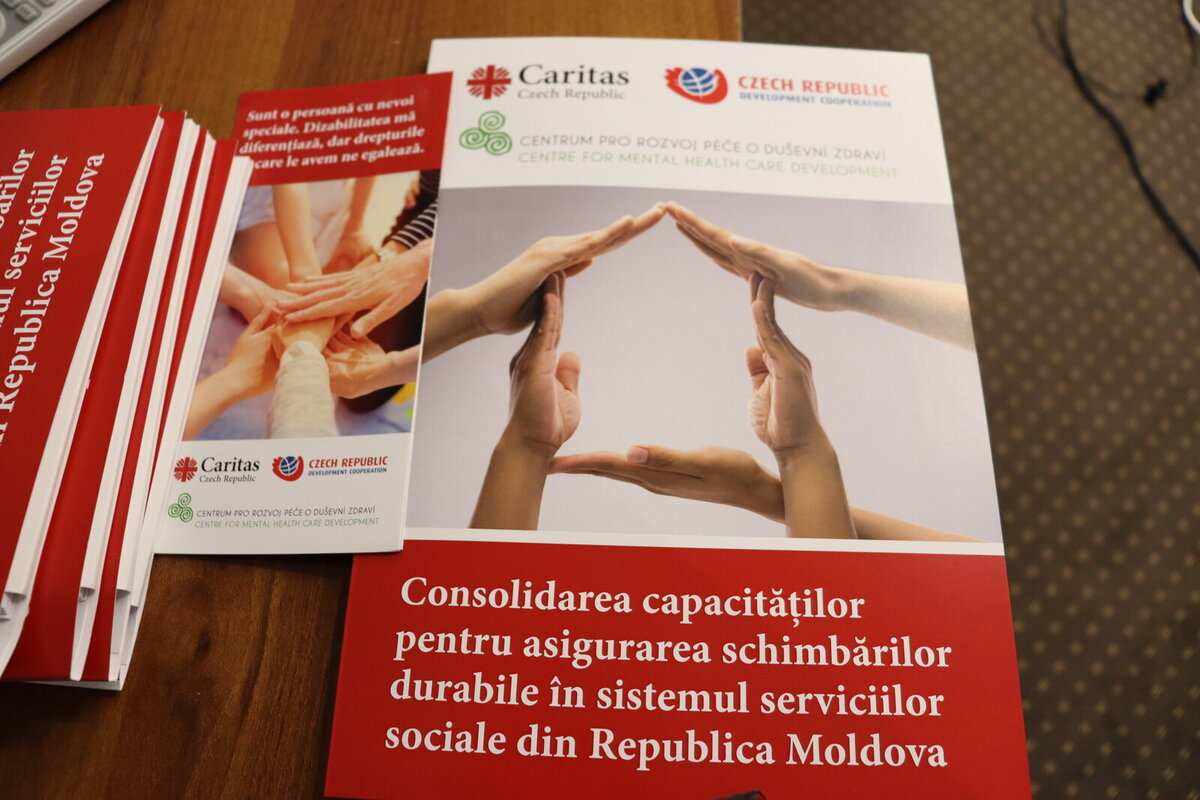In Moldova, there is a clear need for the development of social and mental health services to provide proper support and care. Peer supporters are people with personal life experience in mental health who use their own experience to support others with similar conditions. With the support of Caritas Czech Republic, several recovered people have been trained for the role of peer supporter. We spoke to Inga Cociorva, whose own recovery experience led her to become a peer supporter.
When did you decide to become a peer supporter? What motivated you to make this decision?
I knew from my own experience how difficult it is to face discrimination, stigma, judgment, and feel powerless in the face of life's challenges. Through this initiative, I have the opportunity to develop personally and acquire the necessary knowledge to use my recovery experience to support others. For me, becoming a peer supporter was a natural decision, and I am grateful for the support received from Caritas Czech Republic, which offers me the opportunity to express myself professionally, developing skills in the field of mental health services.
What specific training or qualifications do you have as a peer supporter? How did the training organised by Caritas Czech Republic help you for this role?
I participated in training courses for peer supporters in the field of mental health care held in Chisinau and Prague. These trainings organised by Caritas Czech Republic have helped me a lot for this important role in my life. I have gained knowledge and communication skills, as well as personal development skills that help me support people with mental health problems every day.
From your experience, what are the most significant and frequent difficulties faced by people with mental health problems in our society?
I would say it is a lack of communication, attention, and the importance of feeling heard. Most of them face financial problems because it is difficult for them to find a job. Society still has a discriminatory attitude towards people with mental health problems.
What are some strategies or techniques you use when providing support to a person with mental health problems or going through a mental health crisis?
During the conversation, it is important to maintain the dialogue, focusing more on listening and not overwhelming the person with questions like an interrogation. This comfort we achieve through listening influences the person's openness and trust. As for the techniques we use, we rely heavily on discovering the person's strengths, as they give them courage to appreciate themselves and facilitate increased self-confidence. We also use self-awareness exercises and personal state analysis, which help identify and manage the state, to be able to ask for the necessary help.
As a peer supporter, how do you maintain your own well-being and self-care while providing support to others? Are there any difficulties or special strategies you have encountered in this regard?
As a peer supporter, I maintain my own well-being primarily through this regime and responsibility to go to work. Communicating and supporting people with the same mental health problems makes me feel like a useful person in society. Regarding difficulties, I can say that there are people who are insistent in terms of conversations outside working hours. In this case, I try to set reasonable limits and find solutions for each case individually.
What do you believe are the main advantages of peer support in the field of mental health? How are these different from the support people can receive directly from a doctor or hospital?
First and foremost, the work of a peer supporter is a type of professional rehabilitation in one's own recovery. By sharing one's own recovery experience, we are a living example, a strong model that brings hope. In my role as a peer supporter, I have observed that the people we support warmly receive me and are pleasantly surprised when I present myself as a person with mental health problems like them, and immediately become closer to them, offering hope, encouragement, support, and trust.
How do you see the future evolution of peer support in the field of mental health? Are there areas where you believe more attention or improvements are needed?
I see the future evolution of peer support in the field of mental health as prosperous, necessary, and beneficial to society. In my opinion, this support role is important in maintaining and preserving the mental health of people we work with. A lot of work has been done in the field of mental health in recent years, and we feel that we are being heard and supported. More work should be done in educating society through information and promoting inclusion.
Caritas Czech Republic supports social and health care services in Moldova
Caritas Czech Republic promotes the rights of people with mental health problems in Moldova and raises awareness in society about the need to reduce stigma and negative labels for people with mental health problems.
We set out to strengthen the capacity of local actors to ensure sustainable change in the social and mental health services system in Moldova. We trained 7 recovered people with their own experience of mental health issues to become peer supporters, and supported them to be employed in community mental health services.









